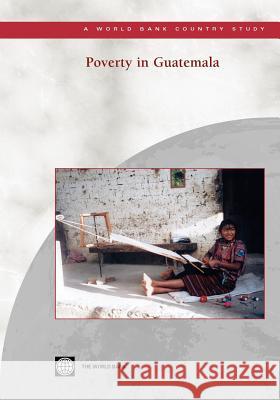Poverty in Guatemala » książka
Poverty in Guatemala
ISBN-13: 9780821355527 / Angielski / Miękka / 2003 / 364 str.
In 2000, over half of all Guatemalans--about 6.4 million people--lived in poverty, with about 16% living in extreme poverty. Guatemala rates among the worst in Latin America and the Caribbean for life expectancy, infant mortality and maternal mortality and while the education sector has made progress there are still important biases against the poor. Similarly, progress has also been made in the provision of basic utilities however, important gaps and disparities remain. 'Poverty in Guatemala' is part of a collaborative multi-year program of analytical work and technical assistance (the Guatemala Poverty Assessment Program, or 'GUAPA' program). This poverty assessment report conducts an in-depth, multi-dimensional analysis of poverty, building on the framework of the World Bank's World Development Report for 2000/2001 using both quantitative and qualitative data. This study also examines the impact of government policies and spending on the poor. Finally, it uses the empirical findings to identify options and priorities for poverty reduction in the future. Policy options are outlined not only in general, but for the specific themes an sectors covered. This report is also expected to contribute to the definition of the country assistance strategy and lending operations of the World Bank and other donors, so as to make these interventions more effective in the future.











